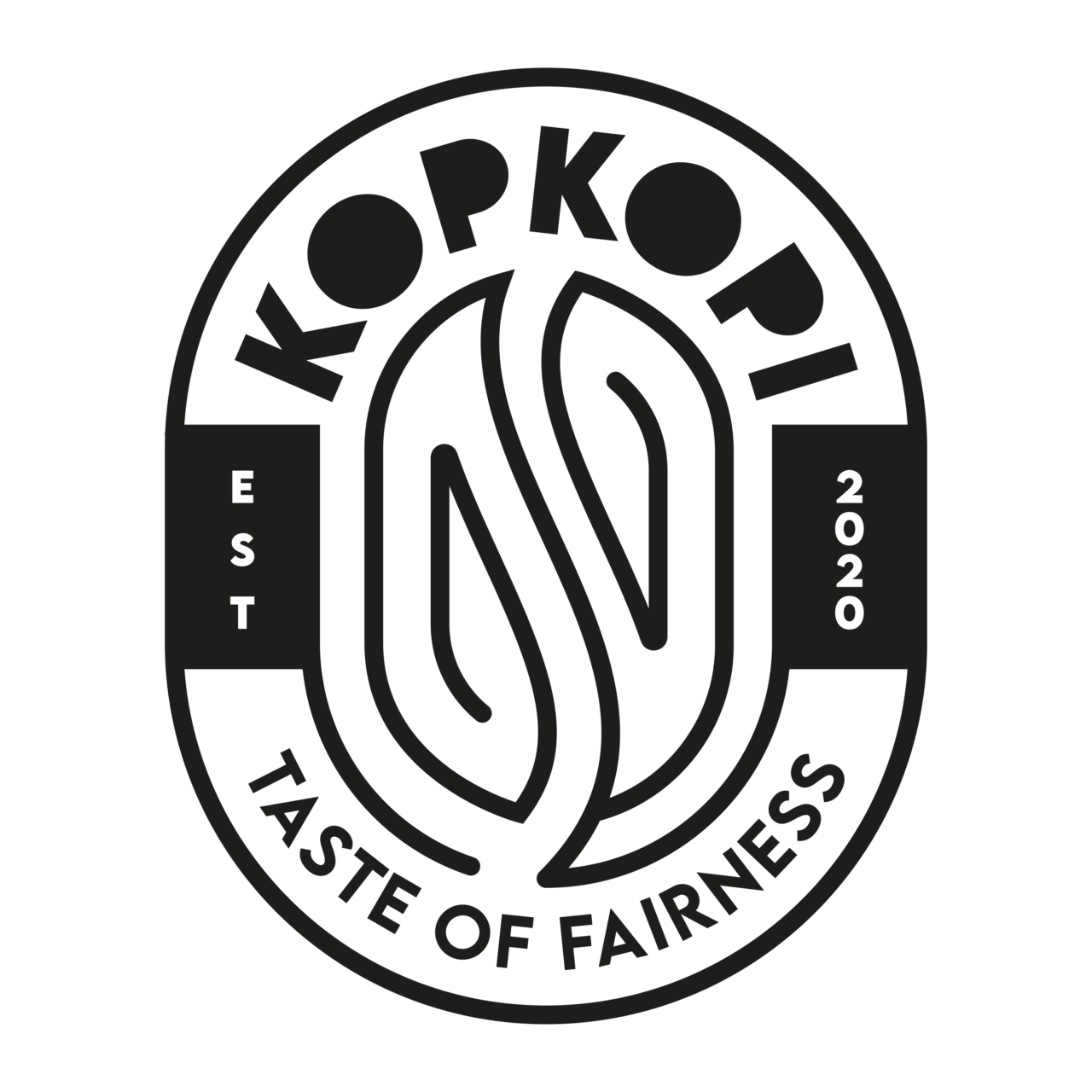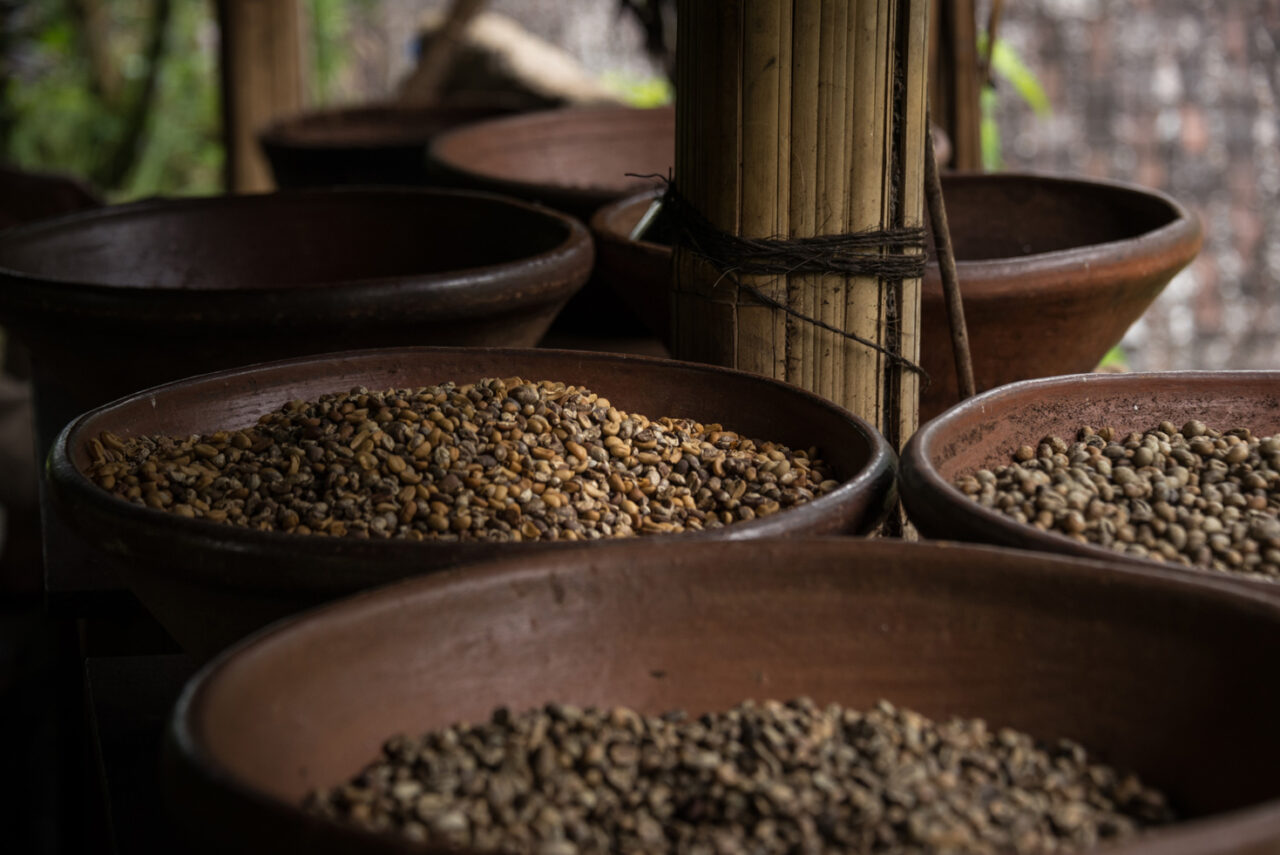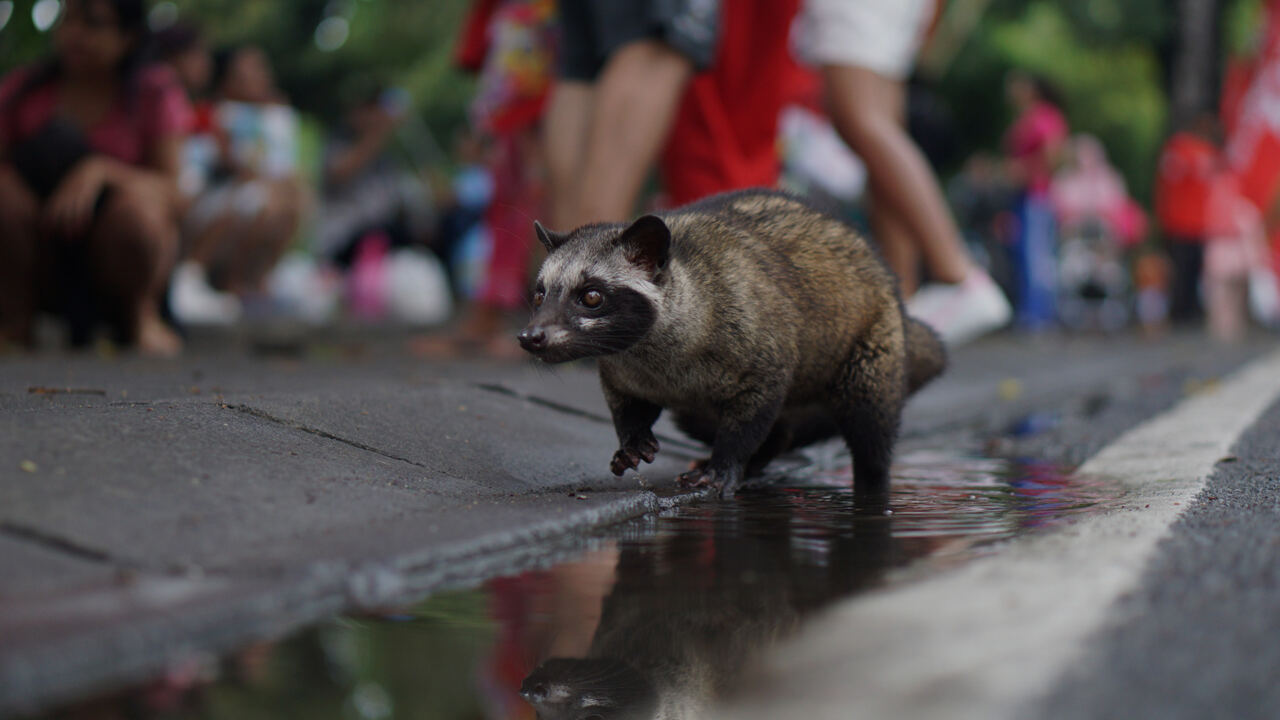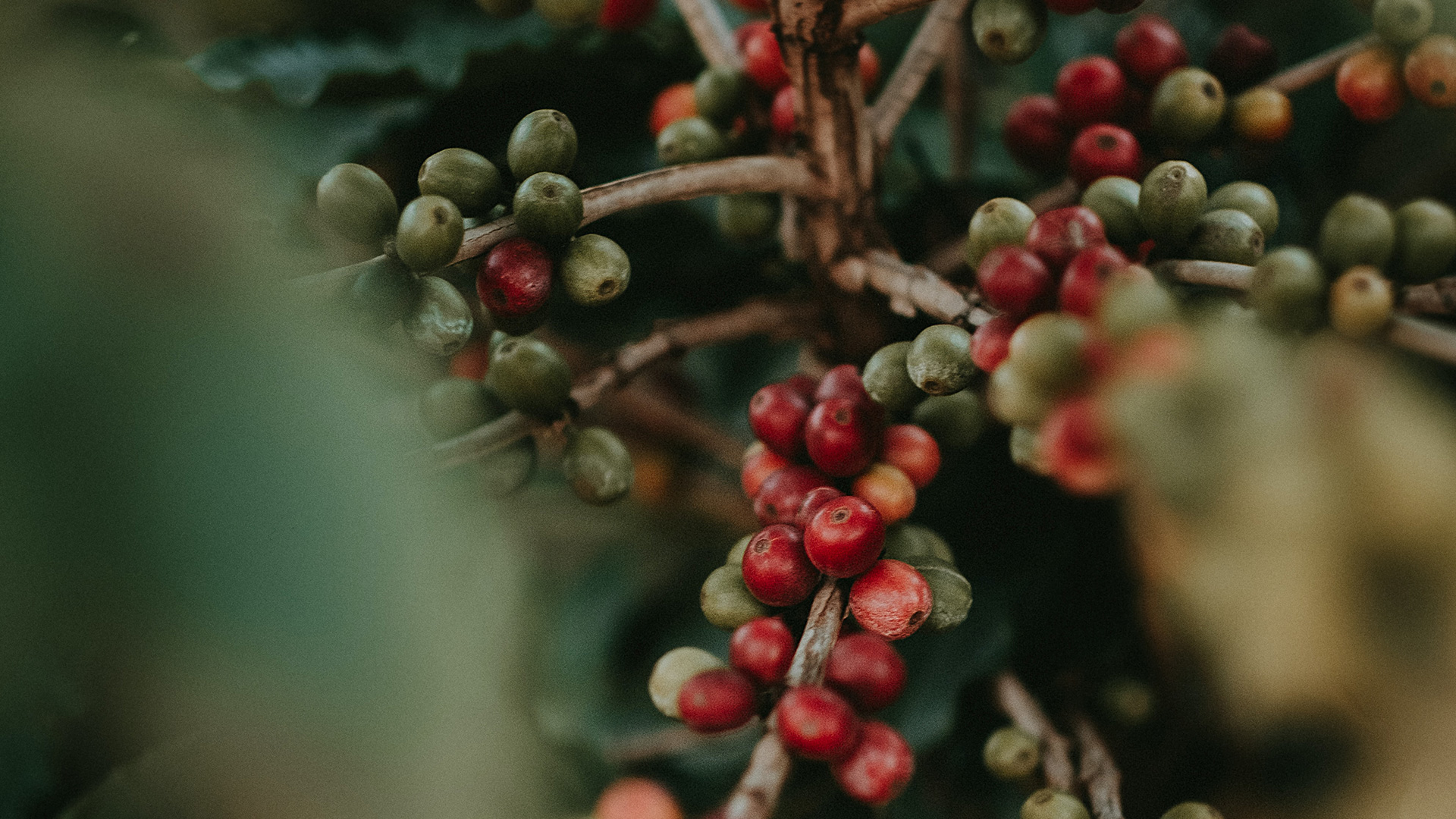Get to know our Costa Rica coffee beans – Rosa
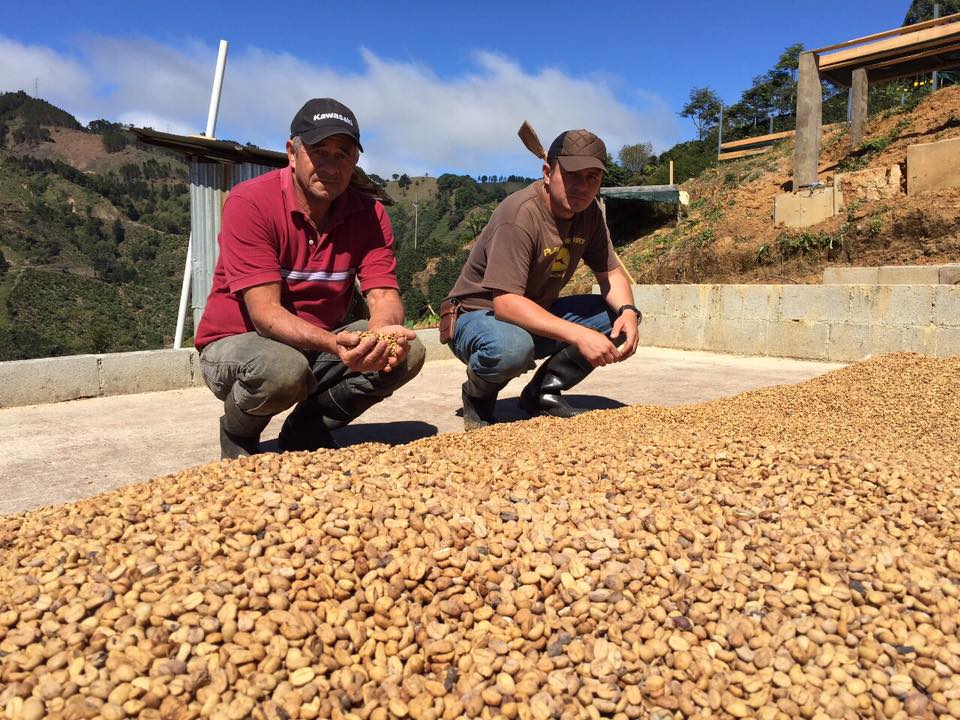
9° 54′ 34.488”N 84° 3′ 14.616”W
1900 ROSA 2X WASH
Get to know our Costa rica coffee beans, 1900 Rosa double Wash coffee, from history to brewing guide.
Find out more about our Rosa below.
Name of Wet Mill: Santa Rosa 1900
Founded: 2009-2010 (first harvest)
Elevation of the farms: 1750-2100 m.s.n.m.
Región: Tarrazú
Sub-Región: León Cortés
Farm Size: 28 ha
NAMES OF THE FAMILY THE SONS/DAUGHTERS INVOLVED IN THE OPERATION:
Kevin Naranjo Vargas – Administration of Farms and Mills
Bianca Naranjo Vargas – Accounting
Francella Naranjo Vargas – Owner of one of the farms
María Isabel Vargas Blanco (wife) – Inferior grades
FINCA MACHO – PROCESS: DOUBLE WASHED
It consists of letting the cherries rest for 24 hours in the receiving tank, afterwards is depulped and mechanically washed. Then it’s transported to another tank with water for 24 hours. During this time the coffee is fully underwater and in the shade, the temperature never exceeds 10-14 degrees Celsius. Finally, this coffee is dried on African beds for 9 days.
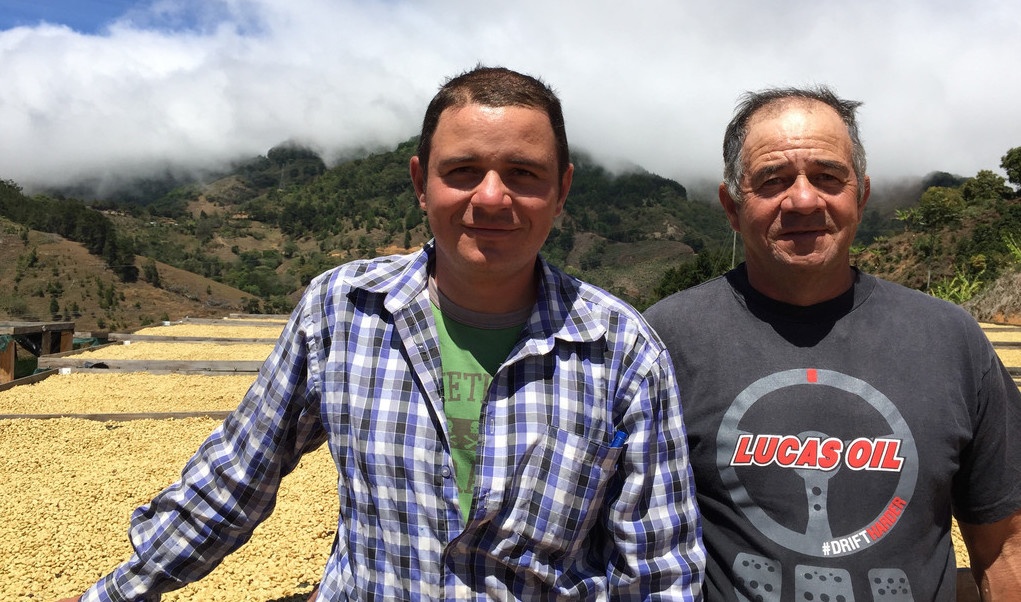
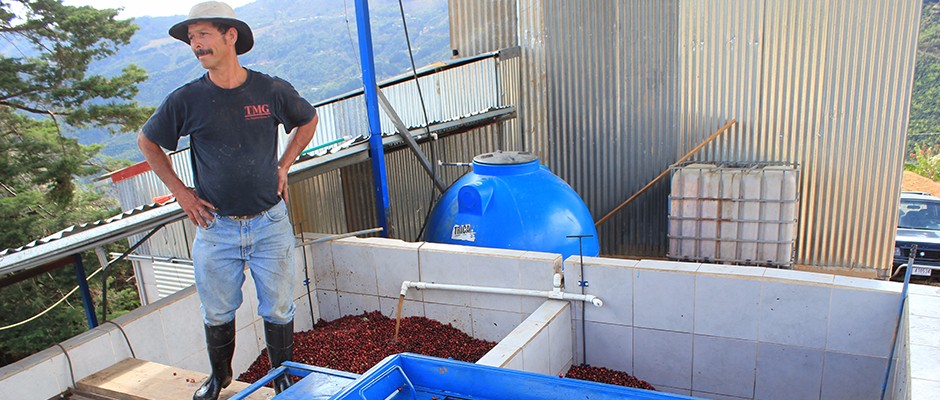
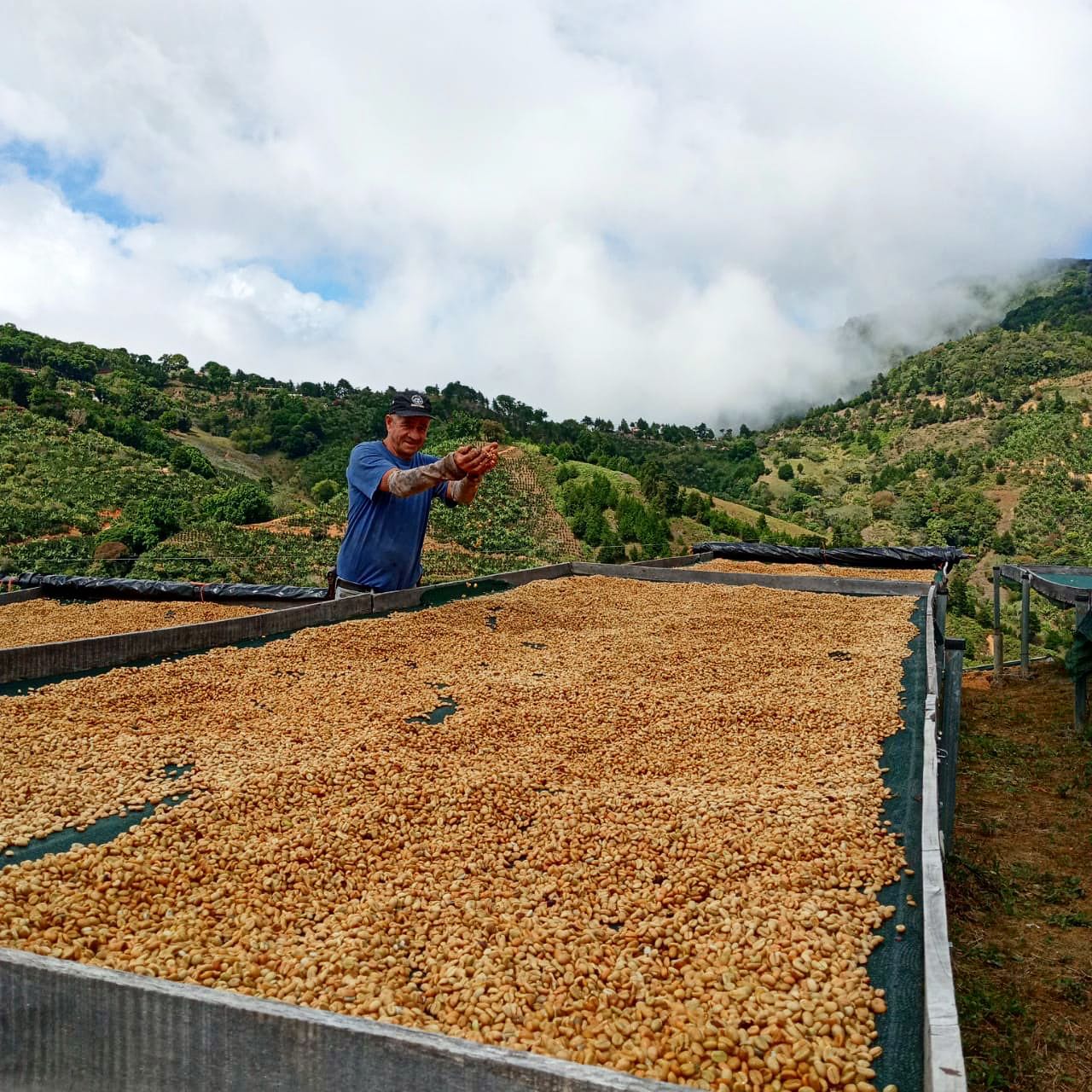
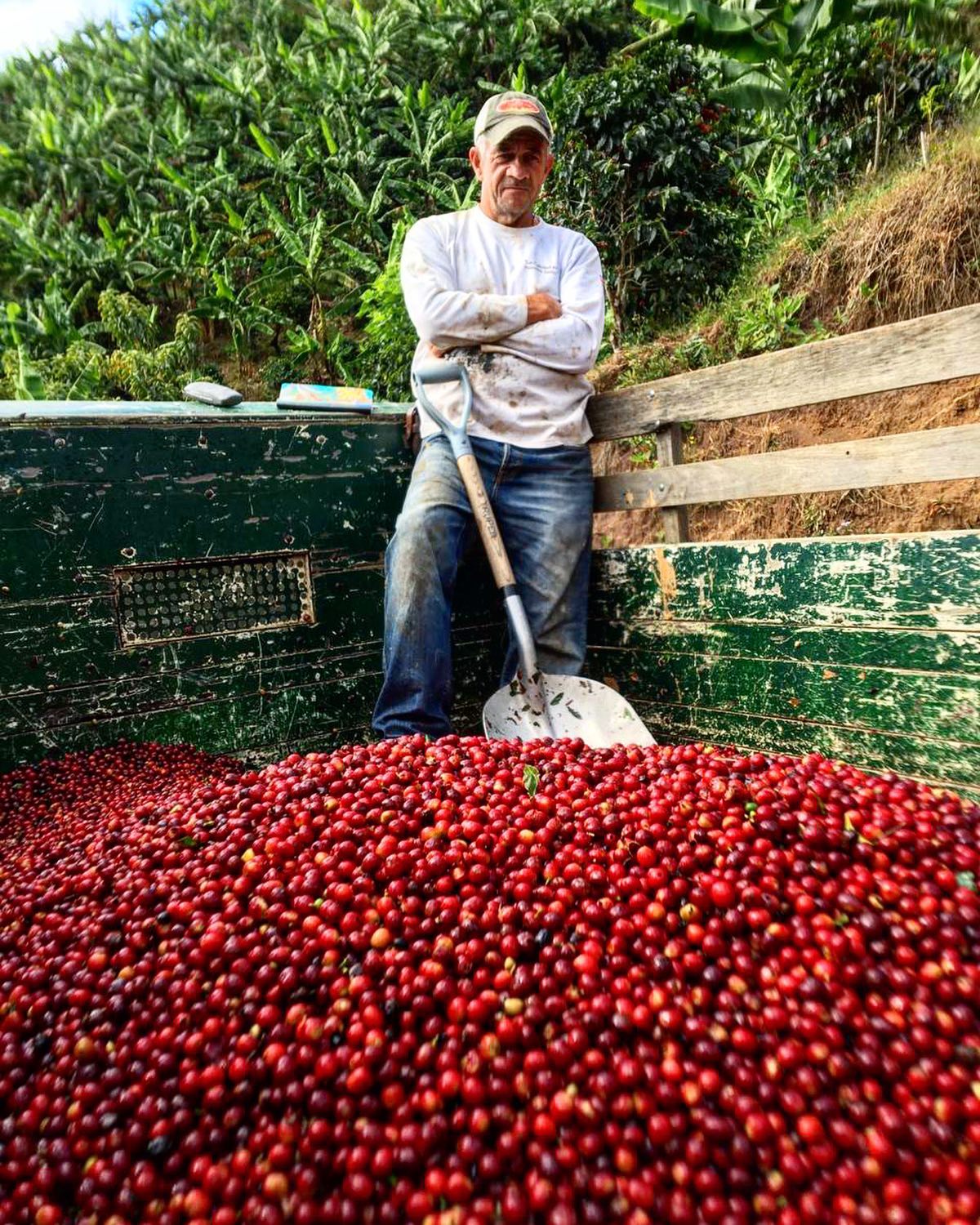
ABOUT THE PLANTATION
These Costa Rica coffee beans come from the Santa Rosa plantation, located in the mountainous region of Tarrazu, owned by Efrain “Macho” and his son Herberth.
Santa Rosa 1900 is named in honour of their local town, Santa Rosa, and 1900 is the elevation of the farm and micro-mill. Sitting atop a mountain at 1900 meters above sea level and stretches up to 2000m, it is one of the most elevated in Costa Rica.
Santa Rosa is a micro mill, named for its location that sits at 1900 masl in the mountainous Tarrazu region of Costa Rica. The mill processes coffee from various farms which are owned by the Naranjo family. The main man behind all the action is Efrain Macho.
Senior Efrain has been farming coffee all his life, now his fourth son Herbeth is working closely with him in handling the operation. Senior Efrain owns a lot of the micro farms which plants Red Catuais, Geisha, and plenty of other varieties. Most of the farm is located near to the Santa Rosa micromill.
Due to the high altitude of the mill, the Naranjo family are lucky enough to have access to a small mountain stream which gives them a plentiful supply of fresh water. This means that they are one of the few mills in Costa Rica that are able to accomplish a fully washed process.
In this case, the coffee is mechanically de-pulped, fermented in mucilage for 12 hours, washed to remove all pulp, then taken to a next set of washing channels, and fermented again for around 10 hours. This second soak is similar to the washed process used in Kenya, allowing for a second sorting stage, removing low quality floating seeds, but also creating a very clean character in the cup, refining and adding clarity to the acidity.
Through persistent dedication to coffee quality, Efraín aka “Macho” and his son Herbeth Naranjo produce a spectacular crop of coffee.
The family started growing coffee in the 1980’s but only began processing their own coffee four years ago, when they built their micro-mill Santa Rosa 1900. Now by managing their own micromill the Naranjos can process their own coffee by lot and control the quality.
The production, management & milling are all done by family members, which also allows for traceability of the coffee.
GROWN AT HIGH ALTITUDE ON FERTILE, VOLCANIC SOIL
Production of these Costa Rica coffee beans is a longer process at this high elevation, where tree growth, cherry ripening and drying take significantly longer than they do at lower farms. It can take up to eight years for coffee trees to mature at a higher altitude, instead of the usual 4-5 years at most farms. The elevation can also delay the ripening of the cherries by an additional month or two and drying by up to 20 days (compared to only 10 days at lower levels).
An additional benefit of such high grown coffee is that the pests and disease that strike at lower altitudes are not found up to 2000 meters.
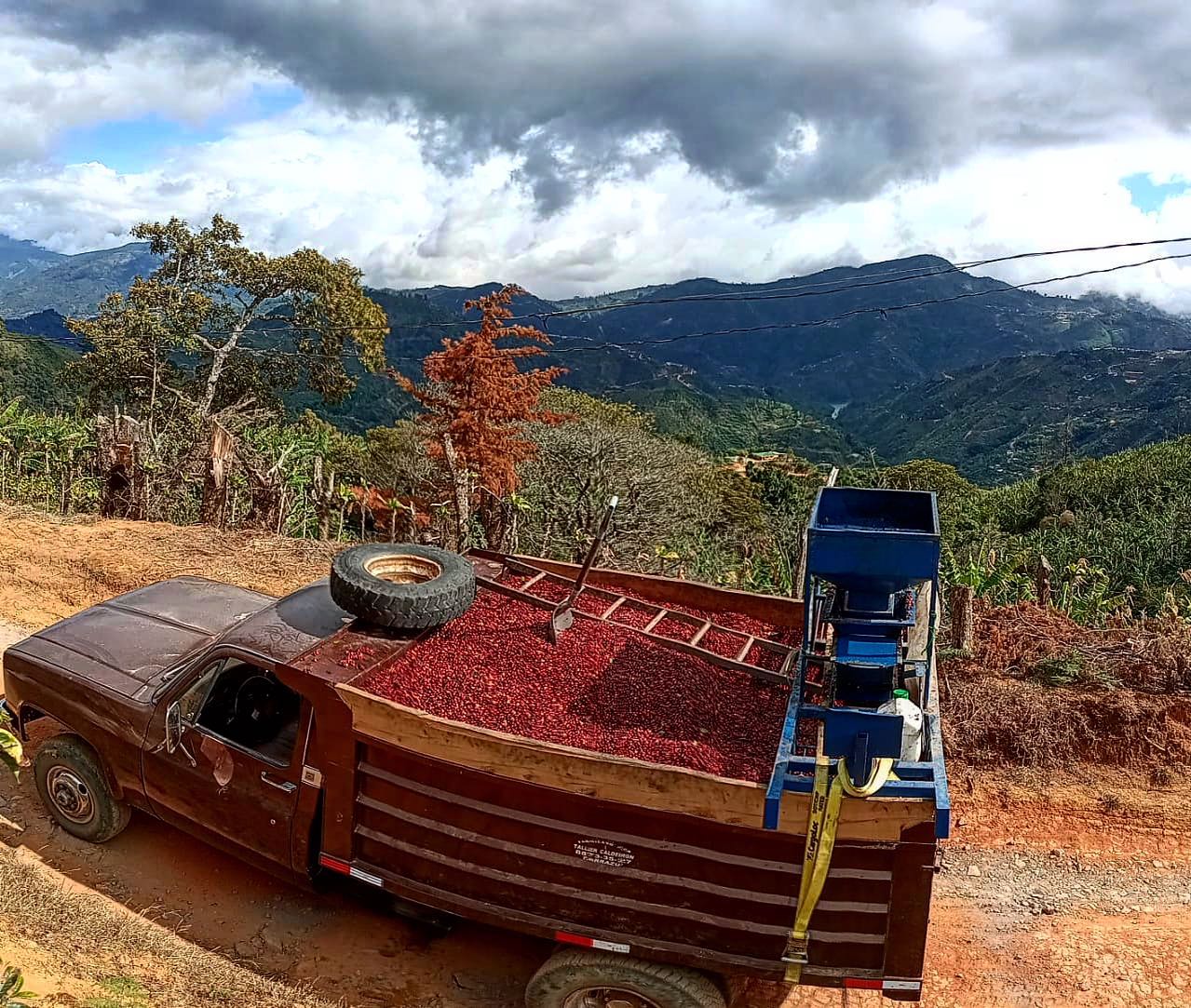
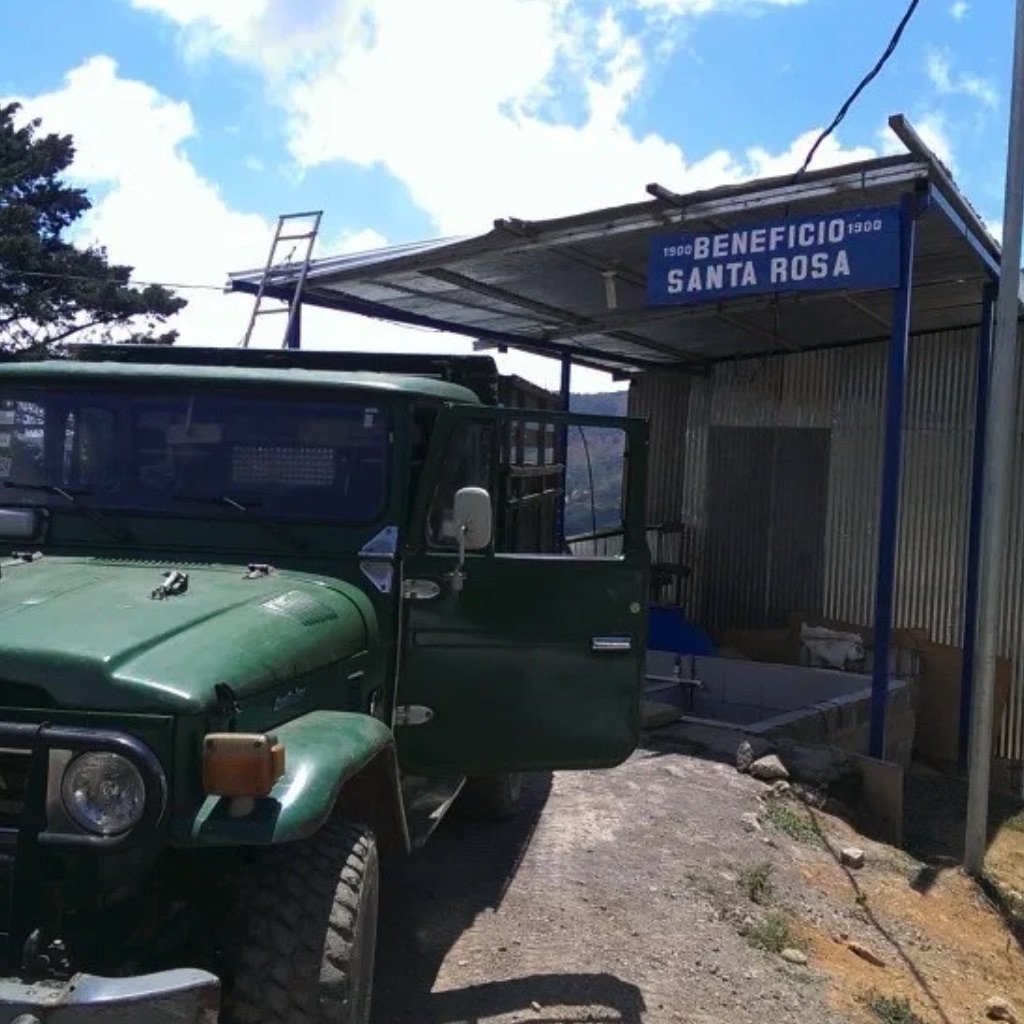
SUSTAINABLE PRACTICES AT THE SANTA ROSA MICROMILL
The micro mill has environmentally sustainable maintenance practices using modern ‘eco pulpers’ & stringent standards of patio & raised bed drying. Costa Rica has very strict laws surrounding coffee processing as a water saving measure and eco pulpers use 75% less water than traditional depulpers.
AWARDED 2015 INTERNATIONAL CUP OF EXCELLENCE AWARD
The Costa Rica coffee beans from Santa Rosa 1900 have earned an International Cup of Excellence Award in 2013 (place 11), 2014 (place 14) and placed 9th in 2015.
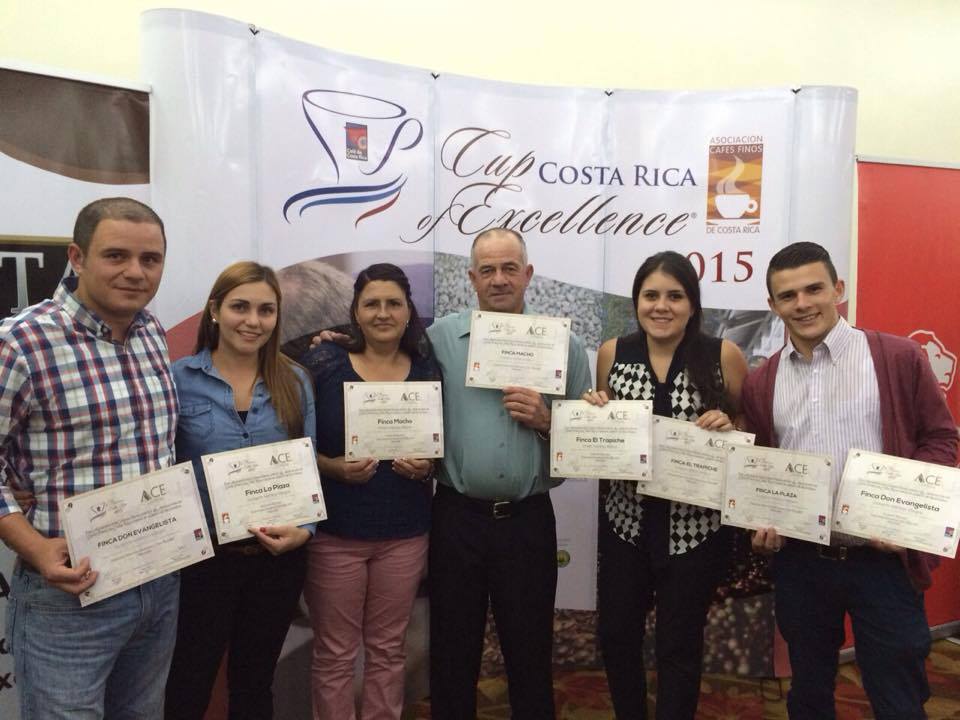
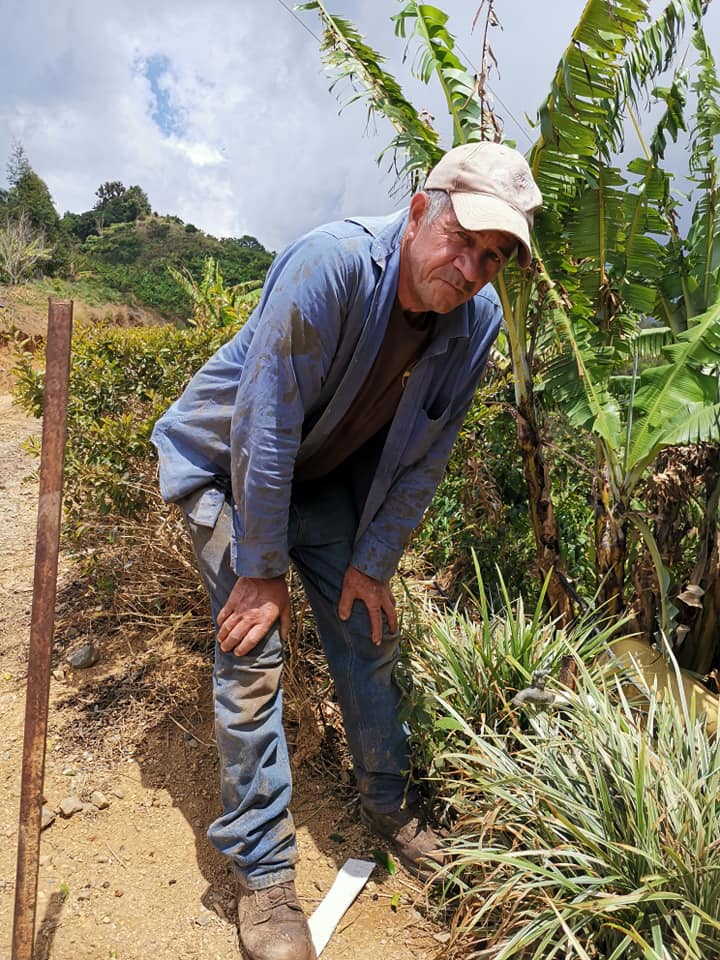
HISTORY OF THE FAMILY AND FARM
Year 1964
At just 5 years of age, Don Efraín Naranjo Blanco began his work in thecoffee plantations. Don Evangelista and Doña Rosa (his parents) were in charge of maintenance, production, and harvesting of coffee from their farms. Together with their 17 children they produced Arabica (Hybrid and Caturra) coffee, with very strict rules when it came to collecting coffee. “Only ripe coffee, as purple as grapes should be collected” – this was the best school
Year 1978
At age 14 Don Efraín Naranjo receives as a gift from his father: the first hectare of coffee to start their business and follow the tradition of the coffee family
“10 Years away”
Don Efraín spent this time without coffee, selling his properties and emigrating to the United States to support his family
2004
“Thanks to God and his love for coffee”, Don Efraín buys a piece of land abandoned that nobody gave anything for, But his vision went further his eldest son, Herbeth Naranjo Vargas was in charge of all the administration and maintenance of the farm, while studying at the University, together with the support of Doña Maritza Vargas, his mother, and wife of Don Efraín they started FINCA MACHO.
AN EFFORT OF FATHER AND SON IS WHAT TODAY TAKES AS A NAME:
Why is it called Santa Rosa 1900?
Santa Rosa- The name is in Gratitude to the place where our farms and processing plant are located.
1900 – The average altitude of farms
Current day
Santa Rosa 1900 is an established family company that is dedicated to the production, processing, and sales of our coffee – nationally and internationally
Our farms have a series of advantages that allow us to have a differentiated coffee: height, optimal climate, coffee varieties, and a single origin, additional to this, an adequate treatment to the plants to have a high-quality finished product.
This system allows us to place it among the best market niches national and international Control, administration, and beneficiary are at responsibility of family members, which contributes to having a traceable, transparent product, with good reviews from our customers.
Their objective
Produce, collect, process, and export high quality differentiated coffee under the environmental sustainability system.
Their mission
To be a leading micro company, producer and processor of high-quality coffee, satisfying the demands of consumers with social responsibility and environmental
Their view
To be a solid, constant, and nationally recognized micro-enterprise and international for offering a product of the highest quality
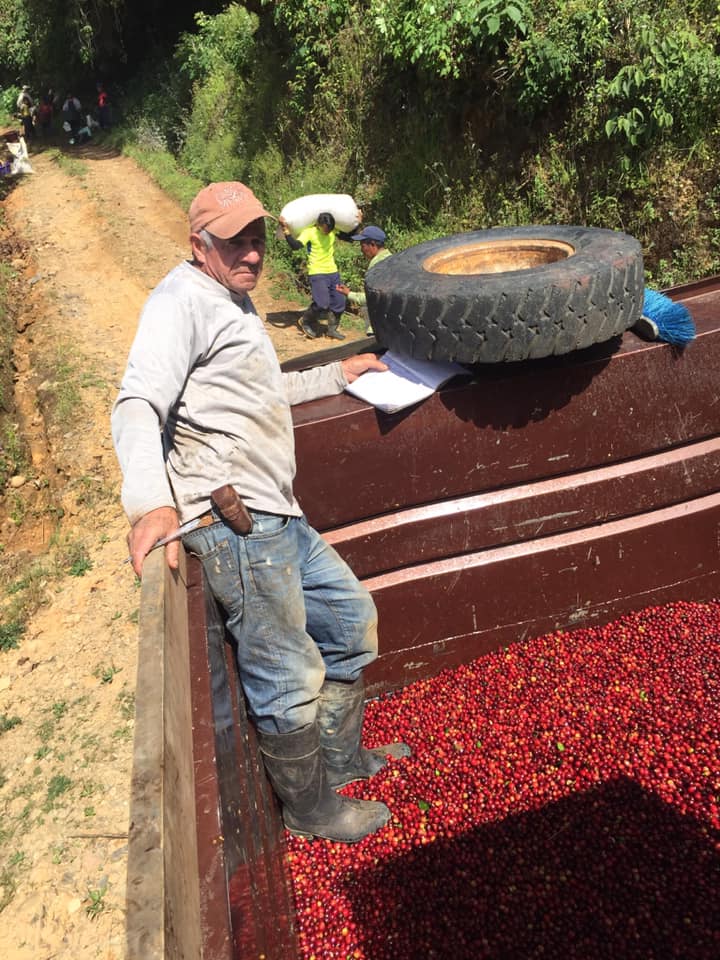
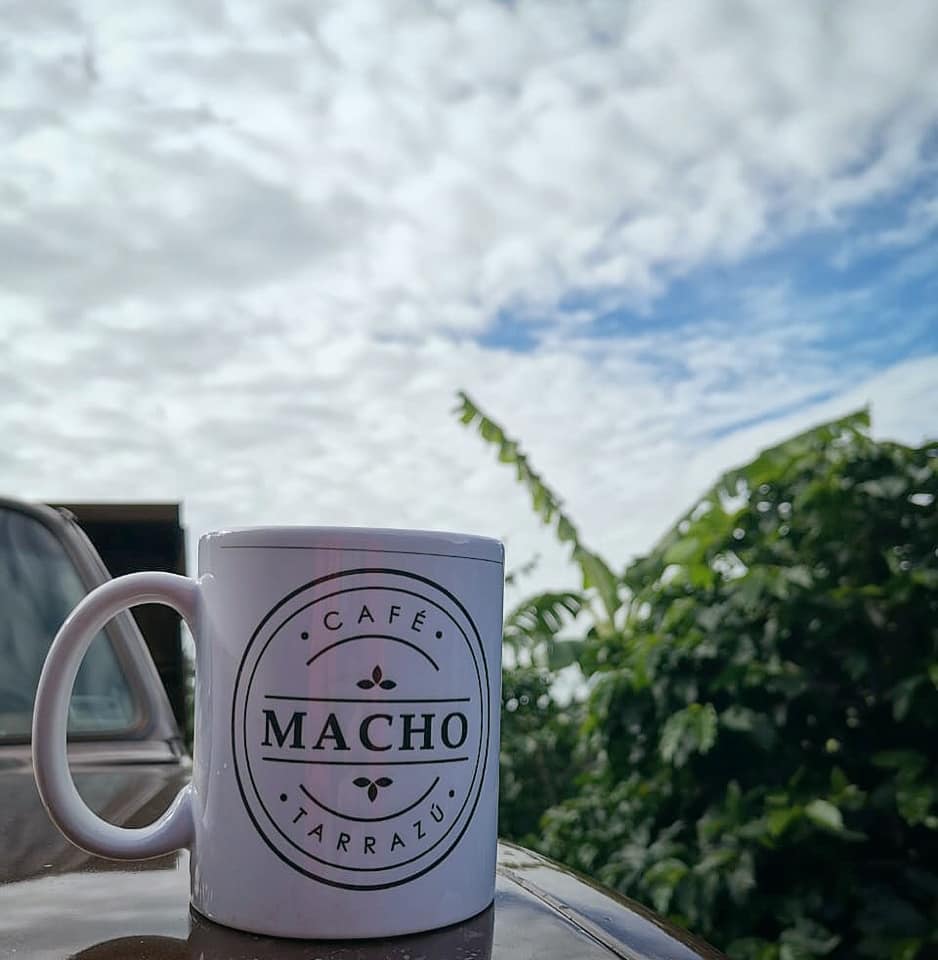
OUR RITUAL
We like our ROSA sweet.
• Method – V60
• Coffee – 20 Gr
• Water – 300 ML
• Pour guide – 100/200/300 ml
• Grind – Drip size (coarse brown sugar)
WHAT’S THE RITUAL
0. Boil some water
1. Grind your Costa rica coffee beans
2. Rinse your filter
3. Put your coffee into the filter and place above a large glass/pot
4. Pour 1/3rd of the Boiling water to cover the coffee in the filter.
5. Wait until drained and repeat step 4 until you reach 300ml of water.
Pro tips:
• Put your drip and glass on a kitchen scale and measure the water.
• Pour in slowly and a circular motion to make sure you cover all the grounds.
• Don’t stir your coffee while filtering.
ENJOY!
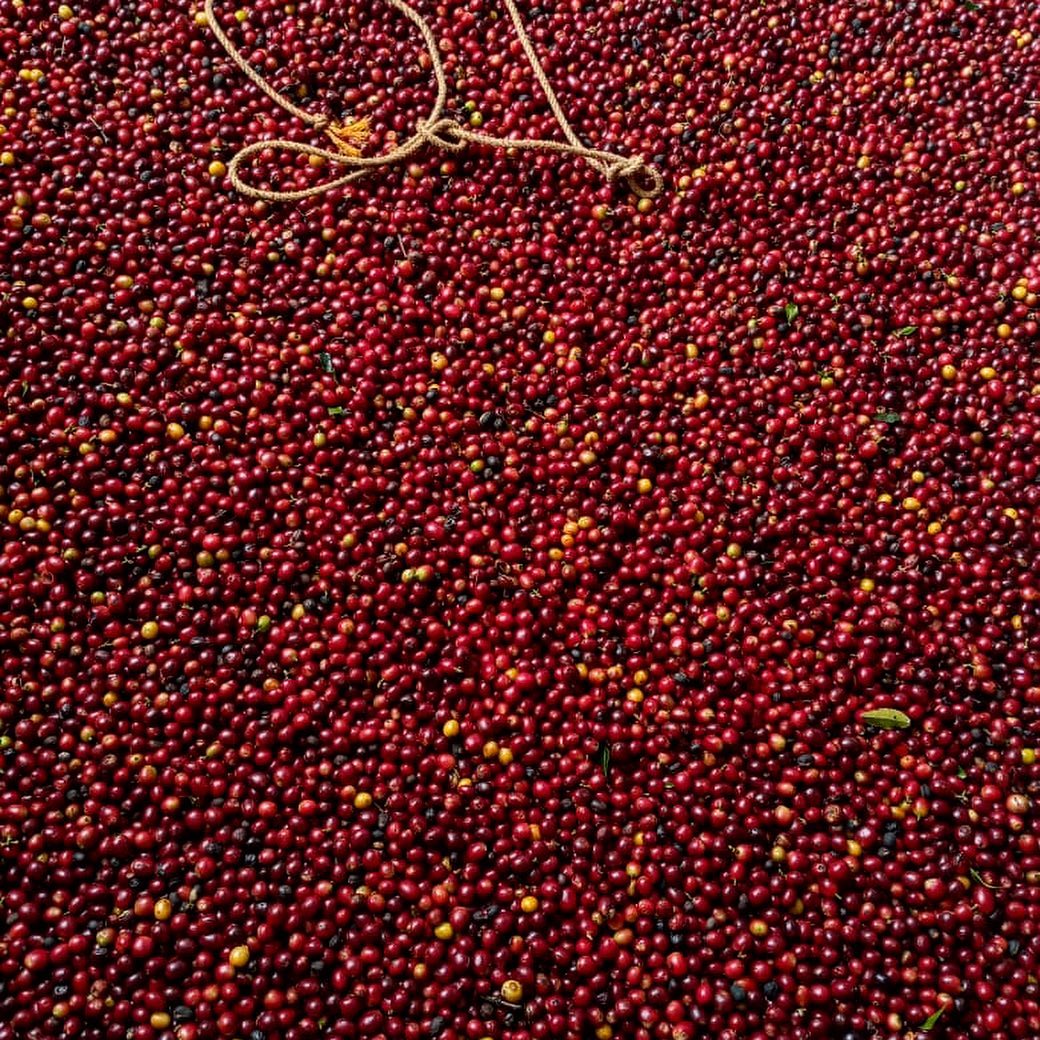
CHECK OUT MORE PICTURES FROM THE FARM:
TRY OUR 1900 ROSA 2x WASH AND OUR OTHER COFFEES:
Coffee varieties, varietal, cultivar; What does it all mean?
WHY ARE COFFEE VARIETIES IMPORTANT? How important coffee varieties are depends on your role in the coffee supply chain. If you’re a consumer, you migh...
KOPI LUWAK, THE MYTH, THE Legend AND THE SHIT
MYTHS AND LEGENDS AROUND THE KOPI LUWAK TOPIC. A few sentences of introduction – what exactly is kopi luwak? For those unfamiliar with the Kopi Luwak ...
GET TO KNOW OUR GAYO
4°33’32.1″ N 96°52’08.1″ E 3X PICK GAYO SEMI-WASHED Find out more about our 3X PICK GAYO SEMI-WASHED below. COFFEE FROM THE GAYO REGION OF SUMATRA Cof...
